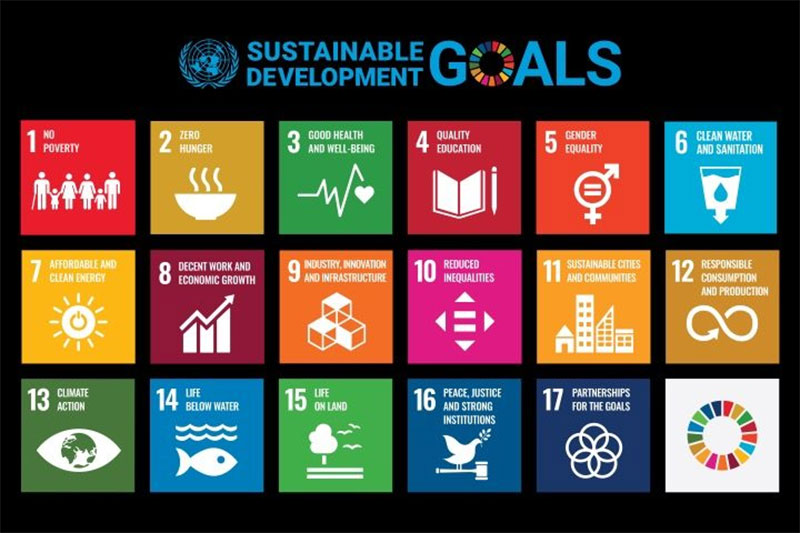
World leaders meeting at the United Nations (UN) in New York this week were faced with the realization that their ambitious plan to end poverty and protect the environment by 2030, as set forth in the organization’s agreed-upon Sustainable Development Goals (SDGs), is falling well short of expectations.
The UN’s 2023 SDG Report bluntly stated that “we are leaving more than half the world behind” at the halfway point to the 2030 Agenda deadline.
“Progress on more than 50 per cent of targets of the SDGs is weak and insufficient; on 30 per cent, it has stalled or gone into reverse. These include key targets on poverty, hunger and climate. Unless we act now, the 2030 Agenda could become an epitaph for a world that might have been,” stated António Guterres, Secretary-General of the UN, in the report’s foreword.
The 2030 Agenda for Sustainable Development was adopted by the UN in 2015 as a blueprint for “peace and prosperity for people and the planet, now and into the future.” The agenda established 17 SDGs within a global partnership to end poverty, improve health and education, reduce inequality, and spur economic growth, “all while tackling climate change and working to preserve our oceans and forests.”
This year’s SDG progress report exposed that the ambitious goals set in 2015 were nothing more than political rhetoric fueled by the organization’s utopian fantasy to build a perfect world.
Pointing fingers at potential causes of the SDGs’ poor showing, Under-Secretary-General for Economic and Social Affairs LI Junhua shared in the report that “we have entered an age of polycrisis. Conflict, climate change, the lingering effects of the COVID-19 pandemic and other global challenges are threatening to derail hard-earned progress towards the SDGs.”
Junhua focused on climate and debt as the greatest obstacles to meeting the UN’s goals. “The climate crisis is worsening as greenhouse gas emissions continue to rise…. Catastrophic and intensifying heat waves, droughts, flooding and wildfires have become far too frequent…. In addition, the world is currently facing the largest species extinction event since the dinosaur age….”
“Developing countries are grappling with an unprecedented rise in external debt following the pandemic, a situation compounded by inflation, rising interest rates, trade tensions and constrained fiscal capacity. Reforms of global governance and of international financial institutions are urgently needed to make them fit for purpose — and fit for the future — by giving more voice and participation to developing countries,” he added.
As with all problems, at least for politicians, money (or the lack thereof) seems to be intricately tied to the success or failure of their best thought-out plans, which was made quite apparent by the secretary-general.
Guterres wrote that to “deal with the root causes of this dire situation [the SDGs’ failure], we need deep reform of our outdated, dysfunctional and unfair international financial architecture. We urgently need financial institutions that are fit for purpose; that ensure the benefits of globalization flow to all; and that deliver on their mandate by providing a safety net for all countries in troubled times. In short, we need a new Bretton Woods moment. Developing countries should have proportionate voice and representation in global decision-making institutions and processes. Economic and financial decisions should prioritize the well-being of people and planet. Governments and the private sector should reorient their economies towards low-carbon, resilient patterns of growth.”
The report focused on five key areas for urgent action that basically reiterated the UN’s Agenda 2030 talking points. However, the key factor that stood out was the call for action on funding the SDGs.
The report declared:
Member States should endorse and deliver a $500 billion per year Sustainable Development Goals stimulus plan between now and 2030.
This calls for immediate action: (a) to tackle the high cost of debt and the rising risks of debt distress, including by converting short-term, high-interest borrowing into long-term (more than 30 year) debt at lower interest rates; (b) to massively scale-up affordable, long-term financing for development, especially through multilateral development banks, rechanneling special drawing rights and aligning all financing flows with the Goals; and (c) to expand contingency financing to all countries in need.
The 80-page SDG report broke down the 17 goals in great detail, including a colorful visual summary of the “dire situation” our world is supposedly facing. But even with the obvious path to failure the UN is on with the SDGs, they still remain optimistic, with UN members pledging in a “political declaration”:
We reaffirm our commitment to effectively implement the 2030 Agenda and its SDGs and uphold all principles enshrined in it. The 2030 Agenda remains our overarching roadmap for achieving sustainable development and overcoming the multiple crises we face. We will act with urgency to realize its vision as a plan of action for people, planet, prosperity, peace and partnership, leaving no one behind. We will endeavour to reach the furthest behind first.

----------------------------
David Kelly is a self-taught, life learner who enjoys research and writing on politics, history and economics. He is active in the liberty movement and seeks the truth in all things. Veritas vos Liberabit !
















